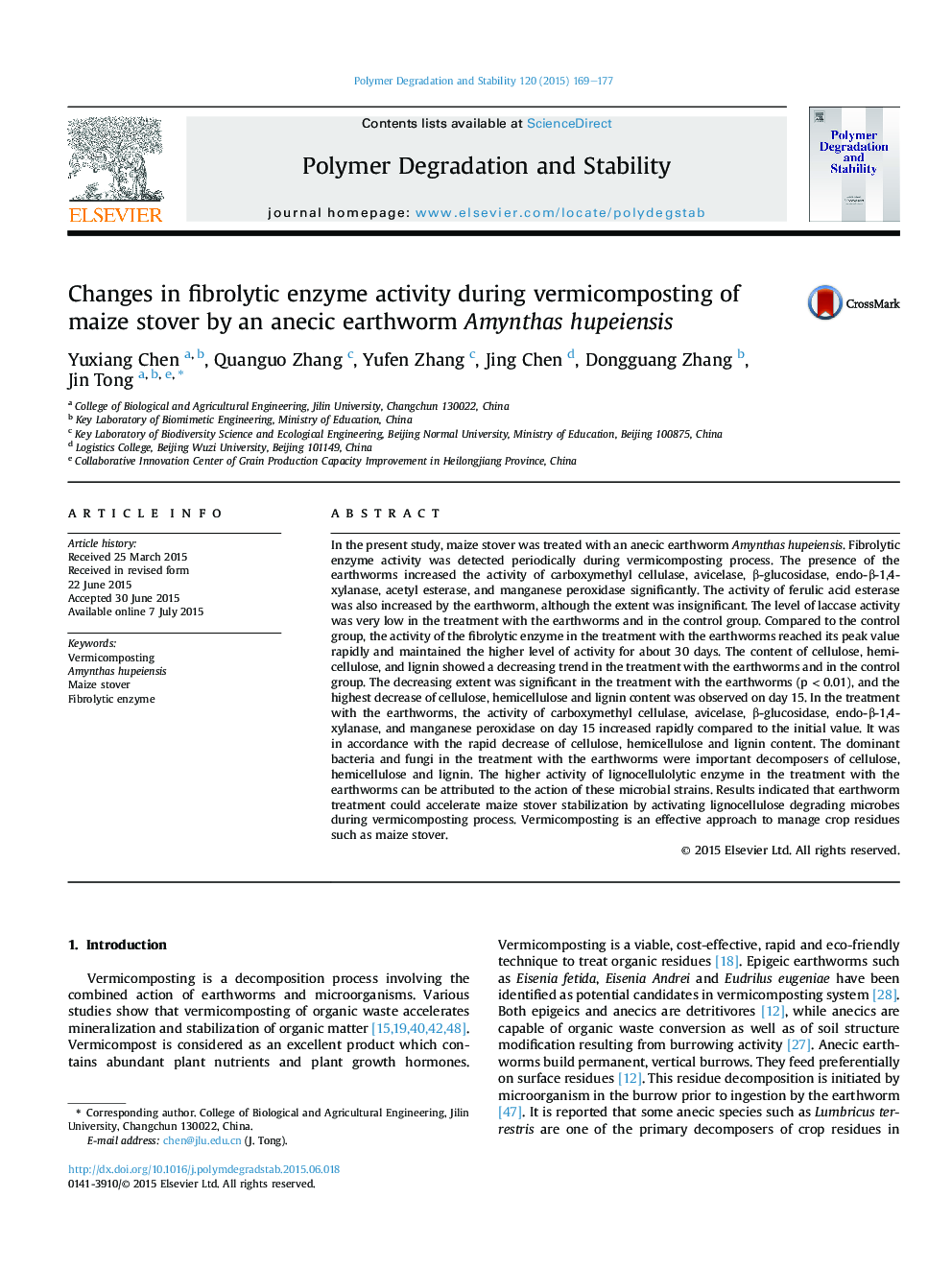| کد مقاله | کد نشریه | سال انتشار | مقاله انگلیسی | نسخه تمام متن |
|---|---|---|---|---|
| 5201300 | 1502893 | 2015 | 9 صفحه PDF | دانلود رایگان |

In the present study, maize stover was treated with an anecic earthworm Amynthas hupeiensis. Fibrolytic enzyme activity was detected periodically during vermicomposting process. The presence of the earthworms increased the activity of carboxymethyl cellulase, avicelase, β-glucosidase, endo-β-1,4-xylanase, acetyl esterase, and manganese peroxidase significantly. The activity of ferulic acid esterase was also increased by the earthworm, although the extent was insignificant. The level of laccase activity was very low in the treatment with the earthworms and in the control group. Compared to the control group, the activity of the fibrolytic enzyme in the treatment with the earthworms reached its peak value rapidly and maintained the higher level of activity for about 30 days. The content of cellulose, hemicellulose, and lignin showed a decreasing trend in the treatment with the earthworms and in the control group. The decreasing extent was significant in the treatment with the earthworms (p < 0.01), and the highest decrease of cellulose, hemicellulose and lignin content was observed on day 15. In the treatment with the earthworms, the activity of carboxymethyl cellulase, avicelase, β-glucosidase, endo-β-1,4-xylanase, and manganese peroxidase on day 15 increased rapidly compared to the initial value. It was in accordance with the rapid decrease of cellulose, hemicellulose and lignin content. The dominant bacteria and fungi in the treatment with the earthworms were important decomposers of cellulose, hemicellulose and lignin. The higher activity of lignocellulolytic enzyme in the treatment with the earthworms can be attributed to the action of these microbial strains. Results indicated that earthworm treatment could accelerate maize stover stabilization by activating lignocellulose degrading microbes during vermicomposting process. Vermicomposting is an effective approach to manage crop residues such as maize stover.
Journal: Polymer Degradation and Stability - Volume 120, October 2015, Pages 169-177